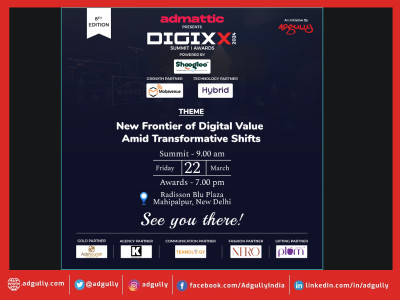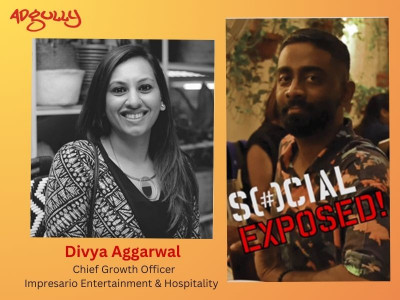Future of Philanthropy - Martech's role in creating lasting social change
Authored by Anubhuti Sharma, Founder, Impresario Global
In a country, social sector funding faces a looming deficit, philanthropy finds itself at a critical juncture. India's social sector spending has seen a remarkable annual growth of 13% over the last five years, yet private philanthropy struggles to keep pace, growing only at a moderate 10% in FY 2023. As the gap between resources and needs widens, the imperative for innovative solutions becomes ever more pressing.
However, philanthropy, as we know it, has silently metamorphosized processes to enable a more impactful outreach. This change is fueled by MarTech. As nonprofits grapple with fundraising shortfalls, the rise of artificial intelligence, and the urgent need for social change, MarTech is enabling philanthropies and impact investment organizations to bridge the widening resource gap and amplify their impact. All civic stakeholders - Donors, Corporates, Civil society organizations and good governance, are an equal part in the engine that is MarTech, to propel the impact of prosocial behaviour.
MarTech is termed an engine for philanthropy because it is an arsenal that has a use case beyond corporate purposes of convincing people to buy products. This is a toolbox of software and platforms that helps prosocial businesses run their marketing, with functions like content creation, email marketing, social media management, and customer relationship management (CRM) all rolled into one. Thus, in the philanthropic landscape, MarTech acts as a connective tissue, allowing donors to connect with relevant impact organizations, corporates to design effective cause marketing campaigns, civil society organizations to segment their donor base and craft targeted communication, and governments to amplify policy level changes, at scale.
The lifeline behind this ecosystem is data. Just like financial markets rely on a steady flow of capital, MarTech thrives on the responsible collection, analysis, and utilization of data. This data provides crucial insights into donor behaviour, campaign effectiveness, and social impact. While MarTech contains a plethora of quantifiers to measure performance and customer network, it can be made even more powerful by coupling it with the tool of impact multiple of money (IMM). Companies with a social purpose and a potentially measurable impact may get a green light for IMM evaluation, and corporates can set a threshold of minimum return of investment, to ensure their social impact efforts are not just well-intentioned, but demonstrably effective.
Bain and Co. reports a positive shift in corporate giving. The number of companies complying with the CSR mandate (2% of profits) has risen. Additionally, the participation of non-BSE 200 companies in CSR initiatives has grown from 50% in FY 2018 to 59% in FY 2022. To harness this wind as a sail, MarTech competencies can enable philanthropic organizations to target and engage with these increasingly purpose-driven corporations. Civil Society organizations can tailor their outreach and engagement strategies, across volunteers, donors, and governments, using MarTech. As businesses are transforming models to generate cash flow corresponding to the social impact they create, it is pivotal for civil society organizations to anticipate the regulatory, consumer and investor push they will face in the coming years.
Resultantly, the Indian government has introduced incentives for the upskilling and assimilation of Indian workforce. As of November 2023, over 3000 Farmer Producer Organisations (FPOs) have registered to be a part of the ONDC network through various Seller Network Participants. Around 400 Self-Help Groups (SHGs), micro-entrepreneurs and social sector enterprises have been onboarded on the network. This indicates that in the tech for social impact space, there lies an opportunity for deepening public-private partnerships, focusing on capacity building among local communities, by equipping them with digital skills and entrepreneurial mindsets, and building trust through robust data protection measures.
For example, civil society organisations can create training programs to equip volunteers, small and medium business owners, beneficiaries with the digital skills necessary to leverage MarTech effectively. This includes training on data analysis, social media management, and content creation. This is how the governments, civil service organisations, doors, and corporates can play a key role in strengthening the capacities of MarTech to work for prosocial behaviour.
DISCLAIMER: The views expressed are solely of the author and Adgully.com does not necessarily subscribe to it.


















Share
Facebook
YouTube
Tweet
Twitter
LinkedIn